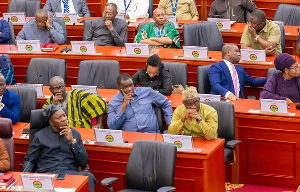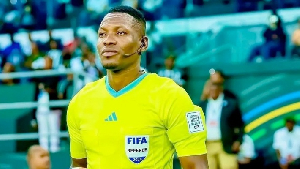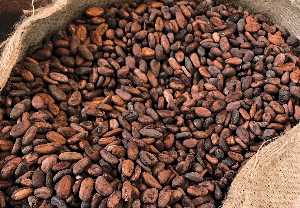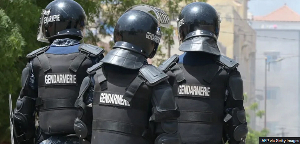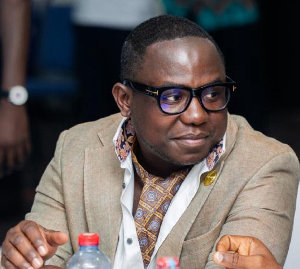By Kester Kenn Klomegah***
Experts on Gender Equality and Democracy have unreservedly supported Nana Konadu
Agyeman Rawlings, the founder of the 31st December Women's Movement and now the
increasingly popular presidential female candidate for the next 2012 elections,
to raise Ghana further on the global stage for promoting democracy and women's
status.
Since its establishment, the UN on Women and Gender Equality, an organization
dedicated to gender equality and the empowerment of women and to participate in
the Millennuim Development Goals (MDGs), has advocated for and raised the flags
high for many women around the world.
United Nations experts have reminded in separate interviews that Ghana has
already scored high marks and praises from U.S. President Barack Obama during
his first trip to sub-Saharan Africa in 2009, from reputable western and local
democratic institutions, and many political experts and academic scholars for
nurturing democracy for over two decades and it would be appreciated if the
electorate seized the opportunity to showcase the importance of women's
participation in politics by backing a Ghanaian female candidate.
In an exclusive interview with Buziness Africa DotCom, Letty Chiwara, Chief of
African Division of the United Nations Women Organization, pointed out from New
York that Ghana, like many other countries, has already made some gains in
improving upon the status of women and in promoting gender equality.
Women currently represent 24% of the ministerial appointees. There are 14 women
out of 75 Ministers and Deputy Ministers in government currently. Ghana is proud
of many outstanding women including Vice President of International Court of
Justice, the Speaker of the Ghanaian Parliament, Chief Justice of Ghana, First
female Vice Chancellor in Ghana amongst others, Chiwara cited these examples in
the interview.
"For the last elections in 2009, two women stood as candidates for vice
president – paving the way for the possibility of having a woman
president. Having a woman stand for the presidency will definitely draw
attention to the need to improve the status of women in Ghana and elsewhere but
this by itself does not represent improvements in the status of women. A lot
more still needs to be done. The need for policies and programmes that actually
lead to improving upon the situation of women and girls in our societies is
paramount," she told Buziness Africa.
Despite the steady position gains and existing challenges in achieving set goals
on gender equality, however, Chiwara cautioned that there can be a woman
president and more women in parliament – but if this does not translate to
changing the lives of women – then these gains will not be meaningful.
Remember these women in authority have to struggle to make an impact and keep
their positions in a male dominated environment, and countries like Ghana should
commit to having more women in parliament and in other positions of authority in
both the public and the private institutions, she explained, added that "these
efforts in addition to others will help improve upon the status of women and
engender gender equality in our countries."
In addition to Ghana and Liberia, countries like Rwanda, Botswana, Uganda, Congo
Brazzaville, Kenya are good examples of African countries that have promoted
positive developments in gender equality.
"We are still not focusing on women and their ability to contribute to the
achievements of the MDGs. There is not a single MDG that does not need to focus
on women for the goal to be achieved. In the same way, the women's movements
need to be strengthened to help set the development agenda and participate in
finding solutions to addressing our development challenges," she suggested
assertively.
Nana Konadu Rawlings, who founded the 31st December Women's Movement (DWM) in
the 90s and championed women cause in the country, is contesting with incumbent
president John Atta Mills whose term stipulated by the constitution ends next
March. Both are members of the NDC, a social democratic political party in
Ghana, founded by former President Jerry John Rawlings in 1992.
Last month, Nana Rawlings launched her campain and accused Atta Mills government
for failing to pursue what she called "the NDC avowed commitment of defending
the will of the people" and made an irreversible promise to uproot the culture
of apathy, the culture of indiscipline and the culture of carelessness that has
engulfed the country. She further promised to push for social justice and to
infuse dynamism and vitality into the NDC to meet development challenges under
her leadership and presidency.
Carolina Rodriguez and Violaine Beix, both from the Africa Progress Panel (APP)
the added their voices: "An increase in women's participation in the political
life of any country is a step in the right direction. And it's ultimately good
news for society at large if everyone, including the electorate, recognizes the
importance of actively engaging women in the political and economic life. Ghana
boasts some good examples of women's empowerment."
There is a growing understanding that women are keys to Ghana's development and
that investing in them can help make the country a model for the region. But,
there is still a long way to go. Ghana has one of the lowest percentages of
women parliamentarians in Africa, and this number is declining, they said.
According to the experts, IPU's figures from last April show that women's
participation and representation in the country's Legislative House has dropped
from 10.9% in April 2005 to 8.3% in April 2011. When compared to Rwanda that has
56% of women parliamentarians or South Africa, that has 44.5%, it is evident
that Ghana can aim for more gender equality in the State House.
"As many African countries, Ghana is taking steps in the right direction but
still faces important challenges in terms of implementing the right policy
environment to enable positive action aimed at creating equal opportunities for
women," Carolina Rodriguez and Violaine Beix told Buziness Africa from Geneva,
Switzerland.
The experts told Buziness Africa DotCom: "Women's essential role in development
has been broadly recognized but development cannot happen if women are not
empowered and able to fully participate in all levels of society. At the
political level, gender equality through female political representation is a
key to ensure that women have a voice in national decision-making processes."
Strong female leaders around the world, including African ones such as Ellen
Johnson Sirleaf and the APP's Graça Machel, are testimony of the potential women
have and everyone can look up to them as pioneering examples of women's
empowerment. But, it is not just about shining examples. Africa needs more women
in parliaments and more women ministers (and not only as Ministers for Gender
and Woman Affairs), more senior women in the private sector and in boardrooms.
African leaders need to work on creating adequate spaces for female leadership.
On another front, it is important to highlight that gender equality measures
also come through specific policy measures, political will and commitments.
Instruments and mechanisms such as the AU Solemn Declaration on Gender Equality
in Africa (2004) should serve as a basis to improve gender equality and women's
empowerment in African countries. The Solemn Declaration should be signed by the
countries that haven't done so and ratified by all the signatories. Ratification
should be followed by the creation and implementation of National Plans of
Action for women's empowerment and gender equality.
Two examples to look at are the DRC Constitution and the recently adopted
Moroccan Constitution. They include gender equality principles which if fully
implemented; may begin to result in a real shift of mindsets on the continent.
As stated in the Africa Progress Report 2011, African women's empowerment is
critical to the achievement of all MDGs and not only to the goal of gender
equality. Generally speaking, the continent has seen great progress: most
countries are on track to achieve gender parity in primary education (MDG2) and
female representation in parliaments rose from 15% to 18.5% between 2010 and
2011 (MDG3).
Several obstacles are still blocking progress towards the achievement of the
MDGS: gender gaps in health and higher education, income and employment
insecurity, or access to credit and to property. Thousands of women still find
their talents, opportunities and aspirations blocked by various formal and
informal barriers. Failing to use women's energy and skills hinders progress
towards reaching the goals set by the MDGs.
As Barack Obama pointed out in his speech in Accra in 2009, "the people of Ghana
have worked hard to put democracy on a firmer footing, with repeated peaceful
transfers of power, and with improved governance and an emerging civil society,
Ghana's economy has shown impressive rates of growth."
Now, to realize that promise, Ghanaians must first recognize the fundamental
truth in Ghana: development depends on good governance. That is the ingredient
which has been missing in far too many places, for far too long. That's the
change that can unlock Africa's potential. And that is a responsibility that can
only be met by Africans, to bring into focus the words of U.S. leader Barack
Obama. This democratic change necessarily needs a new ingredient: women. Thus,
it's Time to Rethink about Gender Equality and Democracy!
***Kester Kenn Klomegah is a regional bureau correspondent for Inter Press
Service (IPS) and African News Agency (APA), a lecturer at the Moscow Institute
of Contemporary Journalism and founder of Buziness Africa DotCom. He is also a
keen independent observer and researcher on Russia and China policy in Africa.
Opinions of Monday, 11 July 2011
Columnist: Klomegah, Kester Kenn


